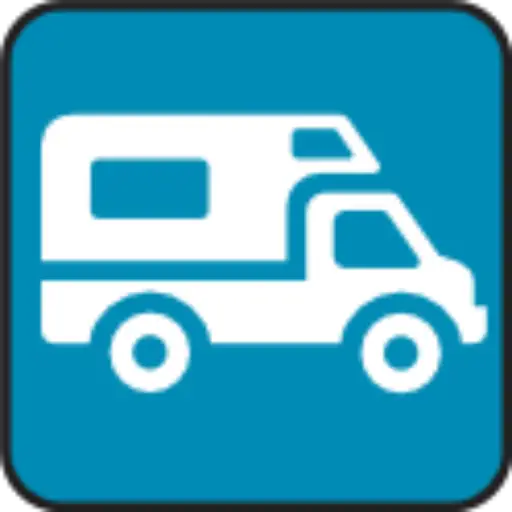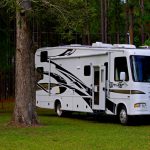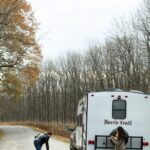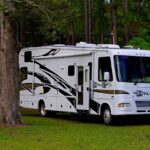Imagine waking up to a new sunrise every day, your office view changing from mountain peaks to ocean waves — all while earning a steady income on the road. Sounds like a dream, right? Well, for thousands of full-time RVers, this dream is very much a reality. But can you really make a living while traveling in an RV? And if so, how exactly do you turn your rolling home into a sustainable business machine?
In this comprehensive guide, we’ll break down 20 proven ways to earn income on the road, share insider tips on tech setups and budgeting, and reveal real stories from RV entrepreneurs who have cracked the code. Whether you’re a freelancer, a digital nomad, or just curious about ditching the 9-to-5 for the open road, this article will equip you with everything you need to know to make your RV lifestyle both adventurous and financially viable.
Ready to discover how to turn your RV into a mobile office and income powerhouse? Keep reading — the road to freedom is paved with opportunity!
Key Takeaways
- Making a living while RV traveling is absolutely possible with the right skills, tools, and mindset.
- Diversifying income streams—from blogging and freelance writing to consulting and e-commerce—is key to stability.
- Reliable internet and tech gear like mobile hotspots and signal boosters are essential for remote work success.
- Budgeting carefully and planning for expenses keeps your RV lifestyle sustainable and stress-free.
- Community support and continuous learning help overcome challenges and accelerate growth on the road.
Curious about the best remote jobs for RVers or how to manage finances on the road? We’ve got you covered in the sections ahead!
Table of Contents
- ⚡️ Quick Tips and Facts About Making a Living While Traveling in an RV
- 🌍 The Evolution of RV Living and Remote Work: How We Got Here
- 💼 Can You Really Make a Living While Traveling in an RV? The Truth Unpacked
- 1️⃣ Top 20 Proven Ways to Earn Income on the Road in Your RV
- Blogging and Content Creation: Share Your Journey and Cash In
- Freelance Writing and Editing: Your Words, Your Wallet
- Virtual Assistant and Remote Admin Work: Helping Businesses from Anywhere
- Consulting and Coaching: Monetize Your Expertise on the Go
- Online Store and E-commerce: Selling Products from Your RV
- Seasonal and Temporary Jobs: Balancing Work and Adventure
- Side Hustles and Gig Economy: Flexible Income Streams
- Creating and Launching Digital Products: Passive Income Power
- 🛠 Essential Tools and Tech for Working Remotely from Your RV
- 🏕 How to Manage Finances and Budget for Full-Time RV Living
- 📶 Staying Connected: Internet and Communication Solutions on the Road
- 🧳 Balancing Work and Travel: Time Management Tips for RV Entrepreneurs
- 📈 Scaling Your RV-Based Business: From Side Hustle to Full-Time Income
- 💡 Real Stories: RVers Who Successfully Make a Living on the Road
- 🚧 Common Challenges and How to Overcome Them While Earning on the Road
- 🌟 Personal Benefits of Quitting the 9-to-5 and Embracing RV Life
- 🎯 Setting Big Goals for Your Mobile Career and Lifestyle
- 📚 Recommended Resources and Communities for RV Entrepreneurs
- 🔚 Conclusion: Is Making a Living While Traveling in an RV Right for You?
- 🔗 Recommended Links for Further Exploration
- ❓ Frequently Asked Questions About RV Living and Working
- 📑 Reference Links and Credible Sources
⚡️ Quick Tips and Facts About Making a Living While Traveling in an RV
Welcome to the wild, wonderful world of making a living on the road! At RV Brands™, we’ve chatted with dozens of full-time RVers and remote workers, and here are some quick, no-nonsense facts to get you started:
- ✅ Yes, you can make a living while traveling in an RV! It’s not a pipe dream but requires planning, hustle, and flexibility.
- ✅ Multiple income streams are your friend. Relying on just one can be risky on the road.
- ✅ Reliable internet is your lifeline. Without it, many remote jobs become impossible.
- ✅ Budgeting and cost control are crucial. RV living can be affordable but watch those fuel and campground fees!
- ✅ Seasonal and temporary jobs can supplement income and reduce living costs.
- ✅ Skills like writing, consulting, virtual assistance, and digital product creation are popular among RV entrepreneurs.
Fun fact: According to a 2023 survey by the RV Industry Association, over 10 million Americans live or travel in RVs each year, and a growing number are working remotely while on the move. Source: RVIA.
Curious how all this looks in real life? Stick with us — we’ll unpack everything from side hustles to tech gear, budgeting tips, and inspiring success stories. Ready to turn your RV into a rolling office and adventure hub? Let’s roll! 🚐💼
🌍 The Evolution of RV Living and Remote Work: How We Got Here
Before smartphones and Wi-Fi hotspots, the idea of making a living while traveling in an RV was mostly a fantasy reserved for retirees or seasonal workers. But the last decade has flipped the script, thanks to:
- The rise of remote work: Companies like Automattic, Basecamp, and Zapier pioneered fully remote teams. The pandemic turbocharged this trend, making remote work mainstream.
- Affordable internet tech: Mobile hotspots, cellular data plans, and satellite internet mean you can work from national parks, boondocking sites, or bustling RV parks alike.
- Gig economy explosion: Platforms like Upwork, Fiverr, and Etsy have empowered RVers to monetize skills from anywhere.
- Digital nomad culture: Influencers and bloggers have inspired thousands to ditch the desk and hit the road.
RV Brands™ has seen firsthand how this evolution has transformed the RV lifestyle from “retirement dream” to “full-time career choice.” For a deep dive into the RV lifestyle itself, check out our RV Lifestyle guide.
💼 Can You Really Make a Living While Traveling in an RV? The Truth Unpacked
Let’s cut to the chase: Can you really earn a sustainable income while living in an RV? The answer is a resounding YES, but it’s nuanced.
What it takes:
- Skill diversification: Most successful RV entrepreneurs juggle multiple income streams — think freelance writing, consulting, and selling digital products.
- Discipline and time management: Working on the road means balancing adventure with deadlines and client calls.
- Reliable tech setup: Without solid internet and power solutions, your work grinds to a halt.
- Financial planning: Knowing your monthly burn rate and having a rainy-day fund is essential.
What it doesn’t look like:
- Instant riches or “get rich quick” schemes.
- Relying solely on social media fame or “influencer” status (more on this later).
- A 9-to-5 grind in a moving vehicle — flexibility is key.
In fact, many RVers start slow, earning a few hundred dollars a month and scaling up over time. For example, one popular RV blogger shared how she went from $140 in month one to $2,500 by month five through blogging and freelance gigs. Follow Your Detour is a great real-life example.
1️⃣ Top 20 Proven Ways to Earn Income on the Road in Your RV
Ready for the meat and potatoes? Here are the top 20 ways RVers are making money on the road, backed by our RV Brands™ community and industry insights. We’ll break down the most popular and profitable options, plus a few unexpected gems.
Blogging and Content Creation: Share Your Journey and Cash In
Blogging remains a cornerstone for many RV entrepreneurs. It’s a platform to share your story, build an audience, and monetize through ads, sponsored posts, affiliate marketing, and digital products.
Pros:
- Creative outlet + income
- Opens doors to workshops, collaborations, and consulting gigs
- Passive income potential with the right strategy
Cons:
- Takes time to build traffic and trust
- Requires consistent content creation and SEO know-how
Pro tip: Use platforms like WordPress or Squarespace, and tools like Yoast SEO to optimize your blog. Check out Blogging Camp for expert coaching.
Freelance Writing and Editing: Your Words, Your Wallet
If you have a knack for writing, freelance gigs can be a steady income source. Many RVers write for travel sites, outdoor brands like Winnebago, or even technical industries.
Popular platforms: Upwork, Freelancer, ProBlogger Jobs, and specialized sites like Outdoorsy’s blog.
Tips: Build a portfolio with guest posts, pitch regularly, and specialize in niches you love.
Virtual Assistant and Remote Admin Work: Helping Businesses from Anywhere
Virtual assistants (VAs) handle email management, scheduling, social media, and more. It’s a flexible role that fits well with RV life.
Skills needed: Organization, communication, basic tech savvy.
Where to find work: Belay, Time Etc, and VA-specific Facebook groups.
Consulting and Coaching: Monetize Your Expertise on the Go
Have a background in marketing, finance, fitness, or another field? Consulting or coaching clients remotely can be lucrative.
How to start: Build a website, network in your industry, and use LinkedIn to find clients.
Online Store and E-commerce: Selling Products from Your RV
From Etsy shops selling handmade crafts to Amazon FBA businesses, e-commerce offers diverse opportunities.
Considerations: Inventory management can be tricky in an RV; dropshipping or digital products reduce this hassle.
Seasonal and Temporary Jobs: Balancing Work and Adventure
Jobs like campground host, national park concession worker, or seasonal retail can provide income and sometimes free RV parking.
Heads-up: Some positions pay low hourly wages but offer valuable perks like free hookups.
Side Hustles and Gig Economy: Flexible Income Streams
Rideshare driving, pet sitting, online tutoring, and survey taking can supplement your income.
Creating and Launching Digital Products: Passive Income Power
E-books, courses, budgeting tools (like the popular Finance Your Detour program), and printables can generate ongoing revenue.
Key: Invest time upfront to create quality products; marketing is essential.
🛠 Essential Tools and Tech for Working Remotely from Your RV
Your RV office needs the right gear to keep you productive and connected. Here’s what our RV Brands™ pros recommend:
| Tool/Tech | Purpose | Top Picks & Notes |
|---|---|---|
| Mobile Hotspot | Internet on the go | Verizon Jetpack, AT&T Nighthawk, or Skyroam Solis |
| Cellular Booster | Improve signal in weak areas | weBoost Drive Reach or SureCall Fusion2 |
| Power Backup | Keep devices charged | Goal Zero Yeti 500X or Jackery Explorer 1000 |
| Laptop/Tablet | Workstation | MacBook Air M2, Dell XPS 13, or iPad Pro with keyboard |
| VPN | Secure internet connection | NordVPN, ExpressVPN |
| Cloud Storage | File access anywhere | Google Drive, Dropbox, OneDrive |
| Noise-Canceling Headphones | Focus in noisy campgrounds | Bose QuietComfort 45 or Sony WH-1000XM5 |
Pro tip: Test your internet speed with apps like Speedtest.net before committing to a campsite.
🏕 How to Manage Finances and Budget for Full-Time RV Living
Budgeting is the secret sauce to sustainable RV living. Here’s a breakdown of typical monthly expenses and tips to keep your wallet happy:
| Expense Category | Estimated Monthly Cost Range | Tips to Save |
|---|---|---|
| Campsite Fees | $200 – $600 | Use Passport America or Good Sam for discounts |
| Fuel | $300 – $700 | Plan routes efficiently; use GasBuddy for cheap fuel |
| Food | $300 – $500 | Cook in your RV; shop local markets and Costco |
| Internet & Phone | $80 – $150 | Choose unlimited data plans; use boosters |
| Maintenance & Repairs | $100 – $300 | Regular checks; DIY fixes when possible |
| Insurance | $100 – $200 | Shop around for RV and health insurance |
Budgeting tip: Track expenses with apps like Mint or YNAB to avoid surprises.
📶 Staying Connected: Internet and Communication Solutions on the Road
Internet connectivity is the lifeblood of remote work on wheels. Here’s how to stay online:
- Cellular Data Plans: Verizon and AT&T offer the best nationwide coverage. Consider unlimited plans with hotspot capability.
- Mobile Hotspots: Dedicated devices often outperform phone hotspots.
- Signal Boosters: Essential in rural or mountainous areas to amplify weak signals.
- Public Wi-Fi: Use cautiously with VPNs for security.
- Satellite Internet: Options like Starlink RV service are emerging but can be costly and weather-dependent.
For more on internet gear and setups, see our Green RVing category.
🧳 Balancing Work and Travel: Time Management Tips for RV Entrepreneurs
One of the biggest challenges is juggling work deadlines with the lure of the open road. Here’s how to keep your sanity and your income flowing:
- Set dedicated work hours and stick to them.
- Use productivity tools like Trello or Asana to organize tasks.
- Plan travel days as “off” days or light work days.
- Batch content creation or client work to maximize efficiency.
- Prioritize self-care and downtime to avoid burnout.
Our RV Brands™ team swears by the Pomodoro Technique — 25 minutes of focused work, 5 minutes break — to stay sharp.
📈 Scaling Your RV-Based Business: From Side Hustle to Full-Time Income
Starting small is smart, but how do you grow your income to support full-time RV living?
- Diversify income streams: Don’t rely on just one gig.
- Invest in marketing: Build an email list, use social media ads, and network.
- Automate where possible: Use tools like Mailchimp for email marketing, or Shopify for e-commerce.
- Outsource tasks: Hire virtual assistants or freelancers to free your time.
- Keep learning: Take courses on platforms like Udemy or Coursera to sharpen skills.
Remember, growth takes time — patience and persistence pay off.
💡 Real Stories: RVers Who Successfully Make a Living on the Road
Nothing inspires like real-life success. Here are a few tales from fellow RVers:
- Follow Your Detour: This couple grew their income from $140/month to $2,500/month in five months through blogging, freelance writing, and consulting. They now run workshops and digital product sales. Read their story.
- The RV Entrepreneur Summit: Many attendees report building thriving remote businesses from coaching to e-commerce.
- RV Miles YouTube Channel: The hosts share honest insights about the challenges and realities of earning on the road, cautioning against expecting quick influencer fame. Watch their advice.
These stories prove it’s possible — but it’s not always glamorous or easy.
🚧 Common Challenges and How to Overcome Them While Earning on the Road
Earning a living in an RV isn’t all sunsets and campfires. Here are some hurdles and how to tackle them:
| Challenge | Solution |
|---|---|
| Unreliable internet | Invest in boosters, test coverage before booking sites |
| Isolation and loneliness | Join RV communities, attend meetups and online groups |
| Work-life balance | Set boundaries, schedule downtime |
| Income instability | Build multiple income streams, maintain emergency fund |
| Space constraints | Use compact tech, organize efficiently |
| Unexpected repairs | Budget for maintenance, learn basic RV DIY fixes |
Our RV Brands™ team recommends joining Facebook groups like Roadtreking for peer support and advice.
🌟 Personal Benefits of Quitting the 9-to-5 and Embracing RV Life
Here are a few personal benefits our team and community have gained from ditching the traditional office for RV life:
- Freedom to explore: Wake up to new views and adventures daily.
- Flexibility: Work when and where you want.
- Simplified living: Less clutter, more focus on experiences.
- Stronger relationships: More quality time with family or travel companions.
- Personal growth: Learning new skills and adapting to challenges.
It’s not just a lifestyle change — it’s a mindset shift.
🎯 Setting Big Goals for Your Mobile Career and Lifestyle
Six months into RV life, many travelers set ambitious goals — and you should too! Here’s how to dream big and plan smart:
- Define your income target based on your budget and lifestyle.
- Break it down into monthly and weekly milestones.
- Identify skills or services to develop or improve.
- Plan your travel route around work commitments and opportunities.
- Track progress and adjust goals quarterly.
Goal-setting keeps you motivated and accountable on the road.
📚 Recommended Resources and Communities for RV Entrepreneurs
Want to dive deeper? Here are some top resources and communities to support your RV work journey:
- The RV Entrepreneur Summit: Annual event packed with workshops and networking.
- Facebook Groups:
- Online Courses:
- Remote Work 101
- Udemy’s vast course library
- Books:
- The $100 Startup by Chris Guillebeau
- Digital Minimalism by Cal Newport
- Tools:
- Trello, Asana for project management
- Mailchimp for email marketing
- Canva for graphic design
Joining these communities and investing in education can be the difference between struggling and thriving.
🔚 Conclusion: Is Making a Living While Traveling in an RV Right for You?
So, can you really make a living while traveling in an RV? Absolutely! But it’s not a magic carpet ride — it’s a journey that requires planning, persistence, and passion. From our deep dive with RV Brands™ experts and real RV entrepreneurs, the key takeaways are clear:
- Multiple income streams and diversified skills are your best bet for stability.
- Reliable internet and the right tech setup are non-negotiable essentials.
- Budgeting and financial discipline keep the adventure sustainable.
- Community and continuous learning fuel growth and resilience.
Whether you’re a freelancer, blogger, consultant, or seasonal worker, the RV lifestyle offers a unique blend of freedom and challenge. The stories we shared prove it’s possible to build a thriving career on wheels — but it takes grit, flexibility, and a willingness to adapt.
If you’re dreaming of turning your RV into a rolling office and adventure hub, start small, set goals, and connect with the vibrant RV entrepreneur community. Your journey awaits — and trust us, the road to success is as scenic as the destinations.
🔗 Recommended Links for Further Exploration
Ready to gear up and dive in? Here are some top products and resources to help you start or scale your RV-based career:
-
Mobile Hotspots & Cellular Boosters:
- Verizon Jetpack: RVShare | Amazon
- weBoost Drive Reach Booster: Camping World | Amazon
-
Power Backup Solutions:
- Goal Zero Yeti 500X: Camping World | Amazon
- Jackery Explorer 1000: Amazon
-
Online Learning & Courses:
- Remote Work 101 by More Than a Wheelin: Course Link
- Udemy Courses: Udemy
-
Books for Inspiration & Skills:
-
Budget RV Living Resources:
- Harvest Hosts Membership: Harvest Hosts Official
- Passport America: Passport America Official
- Good Sam Club: Good Sam Official
- How to RV Full-Time on $1600/Month: 16 Cheap RV Living Tips: Cinders Travels
❓ Frequently Asked Questions About RV Living and Working
How do you stay connected and maintain a reliable internet connection while RV traveling?
Reliable internet is the backbone of remote work on the road. Most RVers use a combination of cellular data plans from providers like Verizon and AT&T, paired with mobile hotspots and cellular signal boosters (e.g., weBoost Drive Reach). Testing coverage before booking campsites and using VPNs for security are also crucial. Satellite internet options like Starlink RV are emerging but can be costly and weather-dependent. Always have a backup plan, such as public Wi-Fi or coworking spaces, for critical deadlines.
What are the best RV destinations for digital nomads and remote workers?
Ideal destinations combine good internet coverage, RV-friendly campgrounds, and amenities. Popular spots include:
- Flagstaff, AZ — strong connectivity and outdoor activities
- Austin, TX — vibrant tech scene and coworking spaces
- Asheville, NC — artsy vibe and reliable campgrounds
- Bend, OR — outdoor paradise with good infrastructure
Check RV forums and apps like Campendium to verify internet quality and work-friendly environments.
How do people get health insurance while living and working on the road in an RV?
Health insurance options vary:
- Marketplace plans: Available nationwide, but premiums and coverage vary by state.
- Medicaid: Depends on your state of residence.
- Private insurance: Some RVers opt for short-term or travel insurance plans.
- Health sharing ministries: Alternative for some, but not traditional insurance.
Maintaining a domicile state for legal and insurance purposes is common among full-time RVers.
Can you really afford RV living, and what are the average monthly costs?
Yes, but it depends on your lifestyle and travel style. Average monthly costs range from $1,200 to $3,000+, including fuel, campsite fees, food, insurance, and maintenance. Budget-conscious RVers use boondocking, memberships like Harvest Hosts, and cook in their rigs to save. For detailed budgeting, see Cinders Travels’ guide.
What are the best remote jobs for RV travelers to consider?
Top remote jobs include:
- Freelance writing and editing
- Virtual assistant roles
- Consulting and coaching
- E-commerce and online store management
- Digital product creation (courses, e-books)
- Customer service and tech support
- Seasonal campground hosting or hospitality jobs
Flexibility and internet reliability are key considerations.
How much money do you need to save before full-time RV living and working?
Experts recommend having at least 3-6 months of living expenses saved as a safety net before hitting the road. This fund covers unexpected repairs, medical emergencies, and income gaps. Some RVers start with less but accept higher risk.
What are the most profitable ways to make a living while traveling in an RV?
Profitability depends on skills and effort, but generally:
- Consulting and coaching can command high hourly rates.
- Digital product sales offer scalable passive income.
- Freelance writing and blogging can grow into substantial revenue with time.
- E-commerce with dropshipping or print-on-demand reduces overhead.
Diversification is the secret sauce.
What are the biggest challenges of making a living on the road in an RV?
Common challenges include:
- Unreliable internet connectivity in remote areas
- Balancing work and travel without burnout
- Income instability due to seasonal or gig-based work
- Space limitations for equipment and office setup
- Unexpected repairs and expenses
Overcoming these requires planning, community support, and flexibility.
Can you earn money through blogging or vlogging about RV life?
Yes, many RVers monetize blogs and YouTube channels through ads, sponsored content, affiliate marketing, and product sales. However, it takes time, consistent content creation, and marketing savvy. It’s not a quick path to riches but can become a solid income stream.
What are the tax implications of working remotely from an RV?
Tax rules depend on your state of domicile and income sources. Many full-time RVers maintain a legal residence in a state with favorable tax laws (e.g., Texas, Florida, South Dakota). Income from remote work is generally taxable, and you may need to file state taxes accordingly. Consult a tax professional familiar with nomadic lifestyles.
How do full-time RVers find reliable work opportunities while traveling?
Networking in RV and remote work communities, attending events like the RV Entrepreneur Summit, and leveraging platforms like Upwork, Fiverr, and LinkedIn are common strategies. Building a strong online presence and continuously upgrading skills also help secure steady work.
📑 Reference Links and Credible Sources
- RV Industry Association: https://www.rvia.org/
- Follow Your Detour — Earning Income on the Road: https://www.followyourdetour.com/earning-an-income-while-full-time-rving/
- Roadtreking Facebook Group: https://www.facebook.com/groups/roadtreking/
- Cinders Travels — Cheap RV Living Tips: https://www.cinderstravels.com/cheap-rv-living/
- Harvest Hosts: https://harvesthosts.com/
- Passport America: http://www.passportamerica.com/
- Good Sam Club: https://www.goodsam.com/
- Verizon Jetpack: https://www.verizon.com/internet-devices/
- weBoost Signal Boosters: https://www.weboost.com/
- Goal Zero Portable Power: https://www.goalzero.com/
- Jackery Power Stations: https://www.jackery.com/
For more on RV lifestyle and full-time RV living, visit RV Brands™ Full-Time RVing and Class A Motorhomes.
Ready to hit the road with confidence? Your RV office awaits! 🚐💻✨




